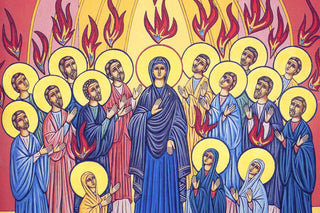Pentecost definitely represents a turning point in Christian history. In fact, it’s an incredibly unique event in terms of spiritual significance, simply because it marks the beginning of the Church...

Even if it’s not as popular as other Christian festivities are, Christmas and Easter among them, Pentecost has its own resonance. Here come five things you should know about it:
The Etymology
The term “Pentecost” comes from the Greek pentekoste (hemera), which passed through the Late Latin pentecoste to Old English as Pentecosten. Its literal meaning is “the fiftieth day”, that refers to the commandment not to celebrate any holiday until the fiftieth day after Passover.
When
In the Christian tradition, Pentecost corresponds to the seventh Sunday after Easter, that is to say after the Eastertide.
The Meaning
The Symbol
On Pentecost Sunday, the Holy Spirit descended from the sky in the form of tongues of fire on about one hundred and twenty followers of Jesus as they gathered in Jerusalem. This is how Christian church began.

The Celebration
One thing you don’t want to miss in Rome on Pentecost is the so-called “Raining of rose petals”, which takes place in the Pantheon after the Pentecostal mass, red petals symbolizing the above-mentioned tongues of fire. Evocative and striking experience, that will fix in your memory forever. By the way, did you know that in 609 the Pantheon has been converted to Christian temple under the name of Saint Maria ad Martyres? In fact, the Rose Fall usually takes place after the Pentecostal mass held exactly here.

Related articles:
St Jude: the Patron Saint we Pray for Impossible Causes→
Easter Vigil: a Complete Guide to the most glorious liturgy for the Church→












